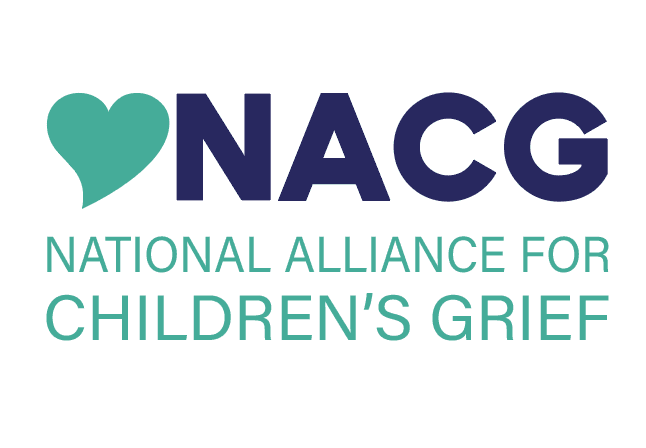For grieving children and families, the coronavirus pandemic can be an especially frightening and uncertain time. As national grief experts, the Children’s Bereavement Center is aware that children and families will continue to grieve as the world around us changes. During this time, the loss of our routines, social life, and school and work schedules can magnify the grief and pain we feel from the loss of our loved one. To help you and your child during these difficult times, we have compiled a list of tips and strategies, which we share below.
Find Out What Your Child Knows. When speaking with a child about a difficult subject, understanding what your child already knows or understands can help you frame your conversation with them. In talking with your child about the coronavirus, the same recommendation applies. Perhaps they already know a lot about the coronavirus from either the news or what they have heard from friends or teachers. Alternatively, a child may know nothing about the coronavirus and have a lot of questions and worries about what is happening in the world around them.
- For younger children, you can ask: “Have you heard grownups talking about a new sickness called the coronavirus going around?”
- For older children and teenagers, you can ask: “What have your friends or teachers been saying about the coronavirus?”
As you listen to your child share what they know, identify things they say which are not true so you can provide accurate information.
Provide Developmentally Appropriate Explanations. As you correct your child’s misunderstandings of the coronavirus and provide them with accurate information, keep in mind that we never want to overwhelm a child with information that could scare them. As a general rule, the younger the child is, the more simple the explanation that you provide them. It’s always better to keep things simple and concrete. If a child has more questions, you can provide them with additional information.
- A simple explanation for a young child could be: “The coronavirus is like a cold or a flu. Do you remember what it was like when you had a cold/flu? Some people just feel a little sick and some can have a cough or fever. For people who catch this sickness, they stay home and rest and eventually get better.”
Ask about Your Child’s Feelings. Although providing your child with accurate and developmentally appropriate information is important, finding time for your child to share their feelings with you can make a tremendous difference during these challenging times. For all children, the world can seem like a scary place at the moment; however, for a grieving child, who may have recently lost a parent or grandparent, hearing and seeing that a sickness can cause people to die can create many worries that need to be shared and talked about.
Some things you can say to your child are:
- I know this can be a scary time and we all have a lot of feelings about everything that is happening. How are you feeling about everything?
- Do you have worries that the coronavirus can affect me or other people we love and care about?
- Are you concerned that you could catch the coronavirus?
For elementary-aged children, talking about feelings can be difficult. Providing creative outlets, such as drawing and music activities, can help them to express what they are feeling.
Offer Reassurance. In these challenging times, providing children with a sense of safety and reassurance is one of the most helpful things we can do. Fears that the people they love can become sick, and maybe even die, are normal reactions for grieving children and should be approached with sensitivity and understanding. Without invalidating their fears and concerns, parents and caregivers can reassure their children that we as adults are doing everything we can to keep them and ourselves safe and healthy.
Some things you can say to your child are:
- Of course you would be feeling scared. Since daddy died a few weeks ago, it makes perfect sense why you would be worried right now. I want you to know that we are safe and healthy and I plan to keep us safe and healthy.
- Doctors have told us that there are many things we can do so that we don’t catch the coronavirus. This is why we wash our hands regularly and stay home as much as possible. When we do these things, it stops the coronavirus from spreading and keeps us all healthy.
- Doctors and scientists have told us that children who catch the coronavirus do get better. Children who catch the coronavirus may have a cough, be tired, and have a fever, but with lots of rest they end up feeling better.
Maintain Routine. Keeping a sense of predictability and routine is a helpful strategy as so much has already changed in a grieving child’s life. With the changes in schooling and socializing due to the coronavirus, things that children once relied upon are no longer available in a stable and consistent way. As a parent or caregiver of a grieving child, try to build routine and predictability into a child’s day as much as possible.
Some strategies could include:
- Having a set time for breakfast, lunch, and dinner
- Having a set bed time
- Having a scheduled time for family activities and play time
In stressful times, parents and caregivers may be tempted to change the house rules as a way of providing comfort. Although flexibility is important, providing children with a routine they can depend upon can provide them with a sense of calm and safety.
It’s Okay Not to Know Everything. Children often have a lot of questions, some of which we have the answers to and others that we do not. In building a relationship of trust and open communication with your children, honesty is always important. If your child has a question that you do not have the answer to, do not lie to your child. Rather, let them know that they asked a very interesting and important question you do not have the answer to, but you will find out and let them know.
One example could be:
- That is an excellent question that I did not think of! I don’t know the answer, but let me find out and I will let you know when I have an answer.
Limit Media Exposure. News coverage of the coronavirus can be scary for children as media coverage often provides more information than a child can fully understand. As adults, it is important to stay informed; however, try as best you can to keep your child from exposure to media coverage that could be scary and overwhelming for them to see and hear.
Be Available. Although it is important for grieving children and teens to talk about their thoughts and feelings, some may not want to talk or feel comfortable talking at the moment. That is okay and is often a common response that we encounter. In these situations, what is most important is to remain available for your child or teen and let them know that they can talk to you whenever they are ready.
Practice Self-Care. By taking care of ourselves, we are also taking care of our children. For parents and caregivers who are also grieving, making time to care for oneself by practicing healthy coping strategies, such as meditation, exercise, or deep breathing, can help you have the emotional space to help your children in their grief.
Find Support. Now, more than ever, no one should grieve alone. Although physical distance is recommended as one of the best preventative measures to spreading the coronavirus, finding support at this time is critical. For those with a support system, reach out to family and friends by scheduling times to talk or video chat through your computer or phone.
For those interested in attending a virtual grief support group, the Children’s Bereavement Center is currently offering weekly virtual groups for adults (English & Spanish), high school students and middle school students. We will also be working with our art and music specialists to provide activities for our elementary-aged participants.
PLEASE CALL 888-988-5438 to register for FREE grief support groups or fill out this form and we'll call you back. Registration is required.
We hope that the tips and strategies provided above are helpful to you and your family. As a grief organization, which believes in the transformative power of social support, know that you are not alone during these difficult times.
COVID-19 UPDATE: FREE VIRTUAL GRIEF SUPPORT GROUPS NOW AVAILABLE. Click HERE to learn more.










